In this article
View 8 More +The Boxerdoodle is a relatively rare yet exceedingly adorable hybrid breed that’s intelligent, energetic, playful, and friendly. Though they can be aloof around strangers, this Boxer and Poodle Mix can make a fantastic companion for the right family. Is this you? Read on to learn more about caring for the Boxerdoodle and what one should expect in terms of temperament and care requirements for this sweet hybrid pooch.
Breed Overview
Height:
10–25 inches
Weight:
12–70 pounds
Lifespan:
10–12 years
Colors:
Black, blue, brown, cream, fawn, gold, red, white
Suitable for:
Families with older children, people who prioritize physical activity
Temperament:
Friendly, playful, loyal, calm, patient
The Boxerdoodle is a relatively new hybrid dog breed, resulting from mixing a Boxer with a Poodle. The resulting puppies combine the best qualities of both breeds, making them intelligent, affectionate, loyal, friendly, and devoted to their family members. However, because there is a lack of uniformity between Boxerdoodles, you never know what you will wind up with when you adopt one. A Boxer Poodle mix can be as short as 10 inches or as tall as 25 inches, or weigh as little as 12 pounds or as much as 70.
Boxerdoodle Characteristics

Boxerdoodle Breed Puppies
Boxerdoodles are not purebred dogs, so you may run into backyard breeders or even puppy mills trying to capitalize on the popularity of these dogs. As with any breed, you need to do your due diligence to choose a reputable and responsible breeder. We do not recommend adopting from the first breeder you stumble across. Instead, make a shortlist of potential breeders and research them thoroughly. Meet with them in person, if possible, and make sure they have all the health certificates required. Quality breeders put their puppy’s health first and have all potential breeding dogs thoroughly tested before mating them.
We’re huge proponents of adoption, so we urge you to search local shelters and rescues to see if you can find a Boxerdoodle if you have your heart set on this breed.
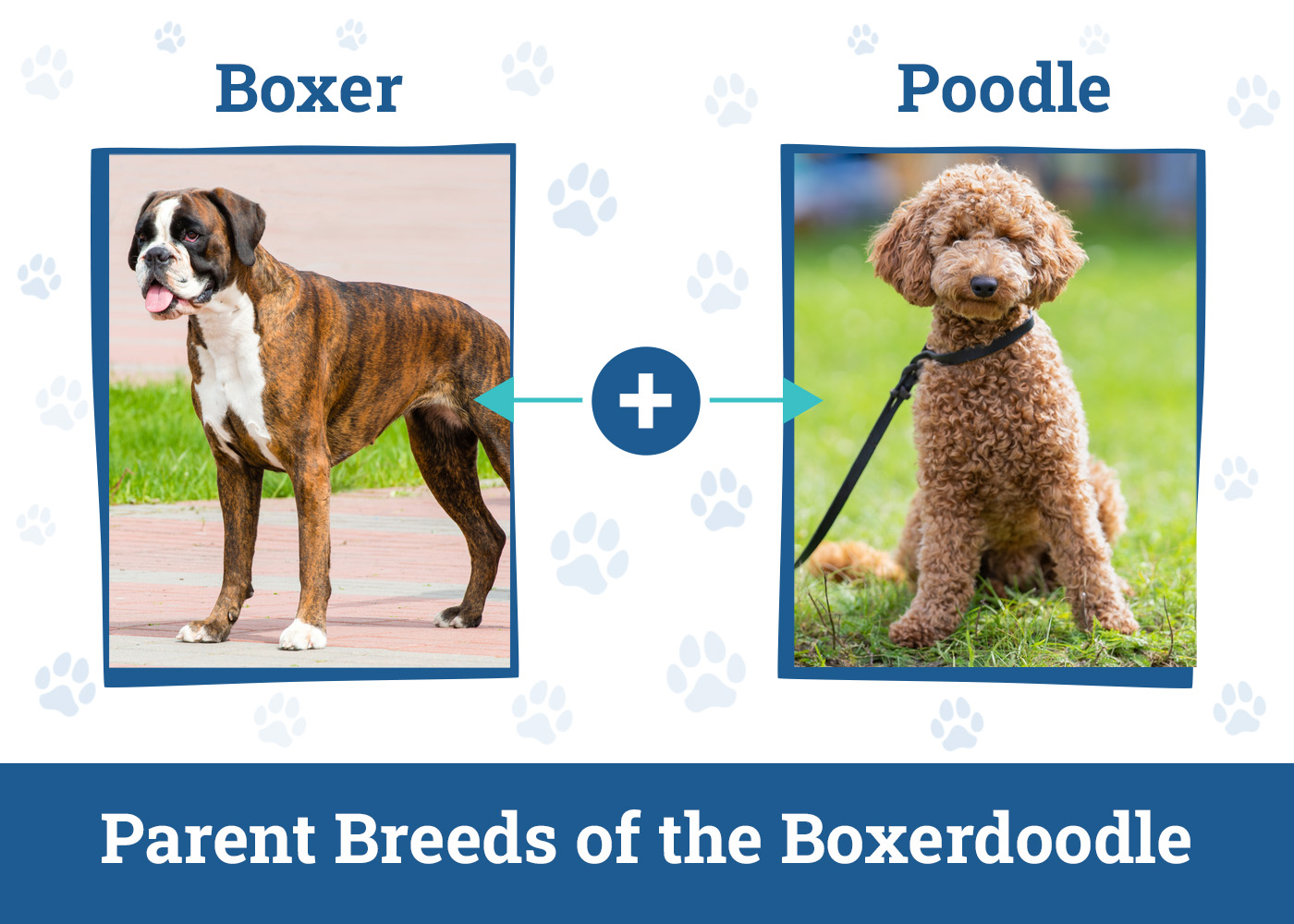

Temperament & Intelligence of the Boxerdoodle 🧠
Boxerdoodles can combine some of the best traits from both parent breeds. They may be exceptionally playful, super friendly, and fun-loving like their Poodle parentage, or they can be highly loyal, alert, and protective like their Boxer side. In any case, these dogs are generally highly active and want to be part of everything their humans are doing.
Both parents are playful and athletic, which may make their offspring a bit of a clown and a constant source of entertainment.
Boxerdoodles may be timid around strangers and even be prone to streaks of aggression if they feel they or their family members are threatened. This likely comes from their Boxer DNA, as this breed tends to be more naturally protective.
Are These Dogs Good for Families? 🏡
Boxerdoodles can instantly become part of the family unit. Because of their highly playful temperament and love of activity, they can be fantastic companions for families with children. They do have high energy, however, which may make them unsuitable for families with particularly small children who may get injured accidentally during rigorous play sessions.
Boxerdoodles are well-suited for families that enjoy staying active on the weekends or those with older kids who love to play.
Does This Breed Get Along With Other Pets? 🐶 😽
Boxerdoodles can get along with other pets, but they’ll need to be properly socialized and trained to live harmoniously alongside them. That said, these dogs often thrive as only pets. However, with a proper introduction period, most Boxerdoodles are accepting of other pets.

Things to Know When Owning a Boxerdoodle
Food & Diet Requirements 🦴
Boxerdoodles can range in size anywhere from 10 to 60 pounds, so we can’t provide exact feeding requirements. However, as with any dog breed, owners will want to feed their Boxerdoodles high-quality, life-stage-appropriate dog food. You may wish to speak to your veterinarian for recommendations on how much and how often to feed, as they’ll take the dog’s size and lifestyle into account.
Exercise 🐕
Boxerdoodles can be the best of both worlds for their owners as they are as happy being physically active as they are lazing around the house. However, for the animal’s physical and mental health, they should get at least 45 minutes of brisk exercise daily. These exercise sessions can include swimming, hunting, walking, jogging, playing, or even participating in dog sports like agility training.
Boxerdoodles thrive in homes that prioritize exercise and physical fitness. Potential owners without sufficient space for their dogs to burn off excess energy should be prepared to take them to large, open areas like dog parks to let their pups blow off steam.
If your Boxer Poodle mix doesn’t get the required amount of exercise, they can develop behavioral problems and begin to act out due to boredom.
Training 🦮
Training your Boxerdoodle can be an interesting endeavor, depending on which parent the dog takes after more.
The Poodle side of the Boxerdoodle can make them very sensitive, which should be considered when implementing a training regimen. Positive reinforcement is key. However, owners will need to strike a balance in training; if they’re too lenient, these dogs may take advantage of them.
Both Poodles and Boxers are highly intelligent and trainable, though they may be wilful at times and fall victim to boredom while training. The best way to train these dogs is to keep things interesting and mentally stimulating. You’ll also want to use a reward system for good behavior.
Both parents are also eager to please, but they can be aloof at first with strangers. A puppy socialization class and group training may be worth the investment to help them get used to new people and other dogs early on.
Grooming ✂️
Boxerdoodles can have a variety of coat types, textures, and lengths; however, they’re usually curly or wavy, thanks to the Poodle genes in their blood. The length can range from short to long. Grooming requirements will vary based on which parent breed the pup has taken after more. Owners will, at the very least, need to brush their pups at least two or three times a week to avoid matting. More frequent brushing may be necessary if their fur is extra curly, like their Poodle parentage. They may need professional grooming two or three times a year to keep the coat looking its best.
Health and Conditions ❤️
While Boxerdoodles are a fairly healthy breed, they may be prone to some of the same issues as their Boxer and Poodle parents.
Poodles may develop hip dysplasia, epilepsy, Von Willebrand’s disease, skin conditions, and gastric dilatation and volvulus (GDV). Boxers may be prone to developing various types of cancer and dilated cardiomyopathy.
- Skin infections
- Allergies
- Hip dysplasia
- Epilepsy
- GDV
- Von Willebrand’s disease
- Cancer
- Dilated cardiomyopathy
Male vs Female
The only potential difference between male and female Boxerdoodles is their size. Female dogs of all breeds are generally smaller in stature and lighter than their male counterparts. However, with mixed-breed dogs, this variability isn’t as notable. The mother dog may give birth to a larger female Boxerdoodle as she takes after her Poodle side. Or she could birth a smaller male pup as he inherited more Boxer traits.

3 Little-Known Facts About the Boxerdoodle
1. Both parent breeds have been around for hundreds of years.
Boxers are hunting mastiffs, first developed in Germany during the 1800s. They originated from the now-extinct Bullenbeisser. Poodles were also originally developed in Germany; however, they were first bred during the 1400s as duck hunters.
2. Boxerdoodles are generally not barkaholics.
Neither Poodles nor Boxers are known to be particularly vocal dogs. This is a great trait, especially if you live in a shared dwelling, such as an apartment building. However, both parent breeds will bark for specific reasons, like when they’re alerting their owners to something or expressing excitement.
3. Boxerdoodles can vary greatly in appearance.
Each Boxerdoodle puppy can look vastly different from the next. This is especially true regarding their size if they have Toy or Miniature Poodle in their DNA. However, most Boxerdoodles will land in the medium to large size as reputable breeders will not use Toy or Miniature Poodles for breeding for obvious reasons. But it’s not just their size that can make each Boxer Poodle mix different.
Boxers and Poodles have different snouts, so the puppies may wind up with a longer Poodle nose or a sturdy Boxer jaw.
The coat is generally wavy or curly, but this isn’t always the case. Boxerdoodles can sometimes inherit their Boxer parents’ sleek coats.

Conclusion
Boxerdoodles are friendly, affectionate, and loyal dogs that are well-suited for many different homes. They make great companions for families with older children, thanks to their playful and sociable temperament. But they may not be suitable for homes with younger kids who don’t yet know boundaries or could be hurt inadvertently during roughhousing-style play.
These dogs are highly intelligent and generally do well with training, as they’re very eager to please. As with most dogs, they’ll require early training and socialization to ensure they grow into well-rounded adults.
Because the Boxerdoodle is a hybrid, the temperament and appearance can vary from dog to dog. But you can get a good idea of what a puppy will be like based on the look and personality of their parent breeds. So, if you’re considering welcoming a Boxerdoodle into your family, we highly recommend educating yourself on Boxers and Poodles to determine if their hybrid will fit in well with your family.
- See Also: 20 Popular Boxer Mixes (With Pictures)
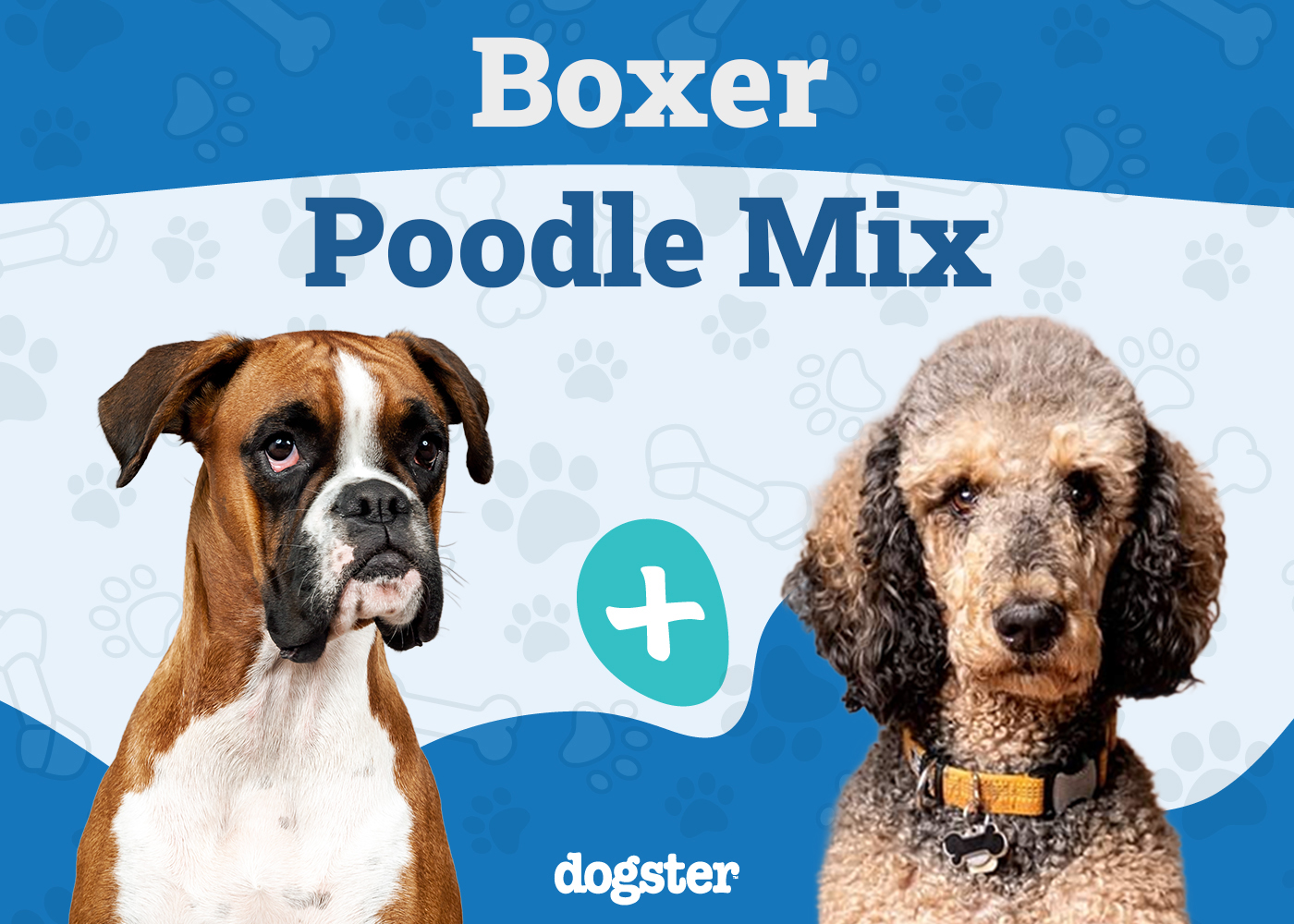


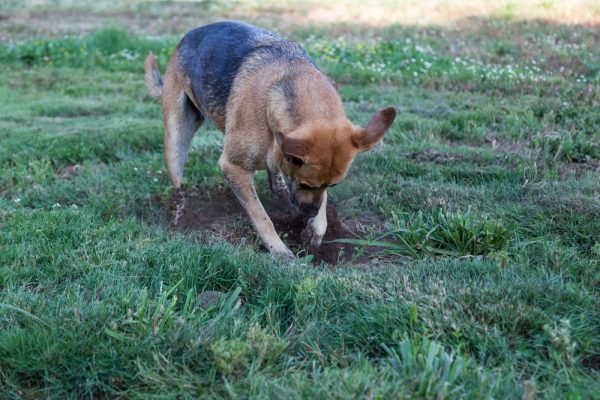
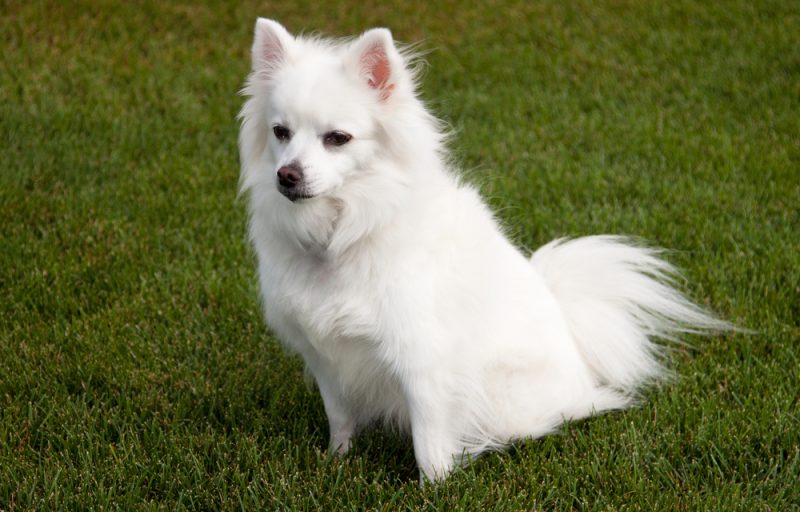
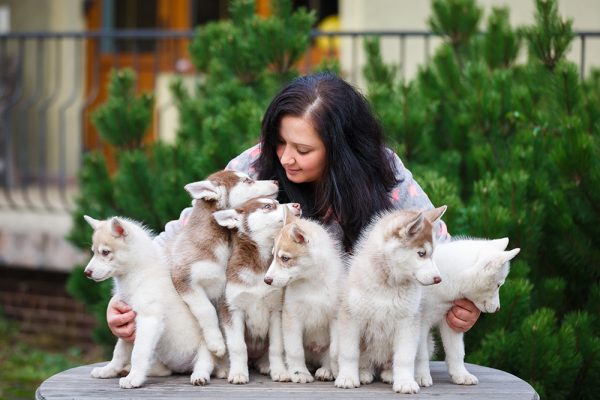

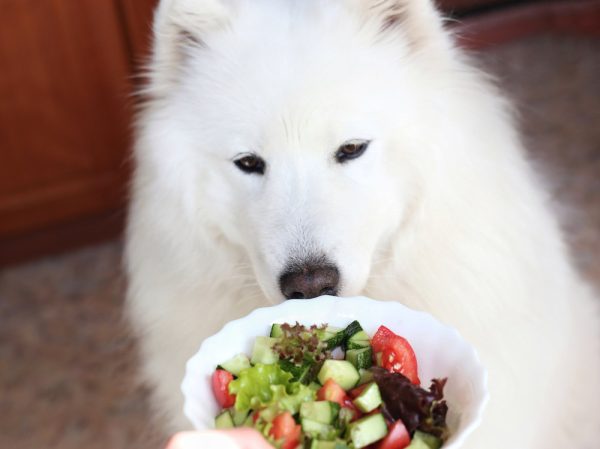

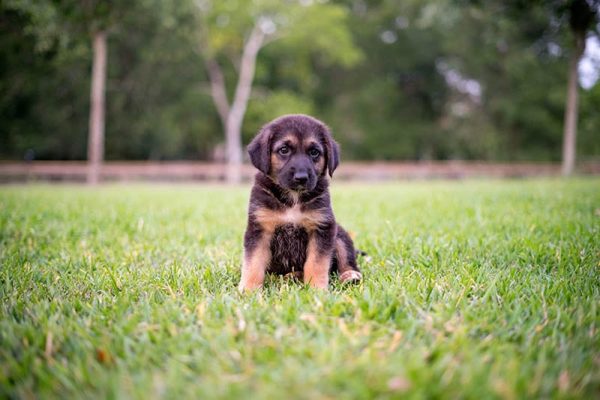




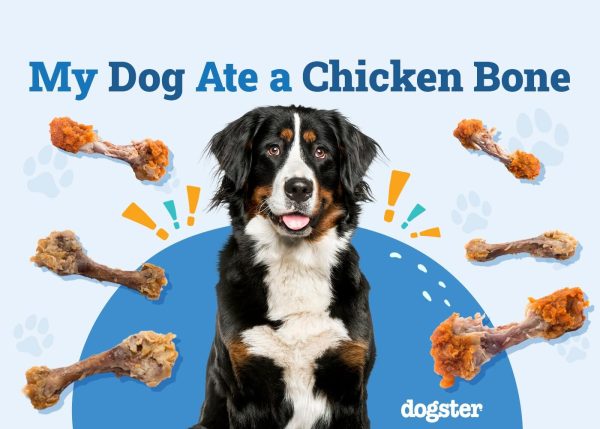
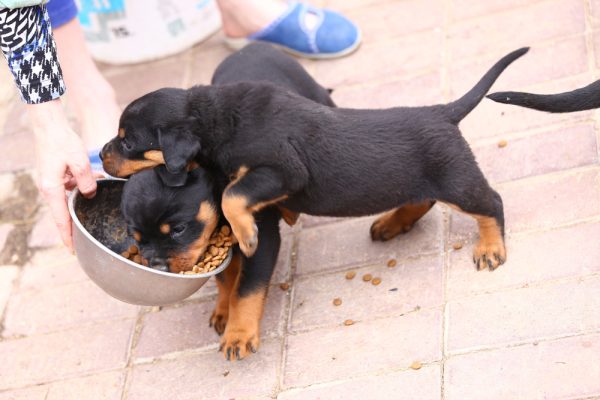

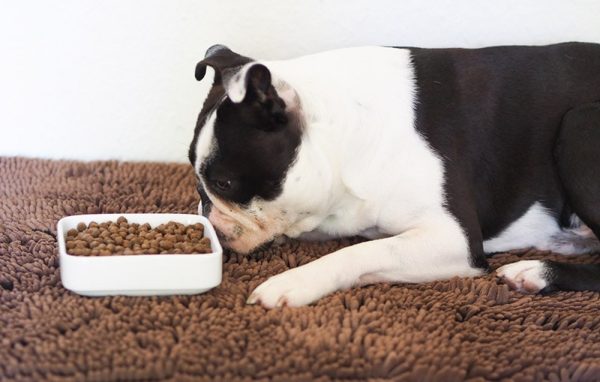

2 Responses
I read the information about a boxer doodle. It seems like the perfect dog for me. I would need one under 20 pounds as I would like the dog to travel on an airplane with me. Can you recommend a breeder for a toy Boxerdoodle?
Hello there,
We're happy to hear you've found a breed that seems like a perfect fit for you! Unfortunately, we are not in touch with any dog breeders, so we are unable to help you out with this. Our best suggestion would be to visit your local shelters and see if you could find a great doggy there to adopt. Alternatively, you can try to search online for something like "Boxerdoodle breeders in my area". This can be a great starting point for your search.
Best of luck!